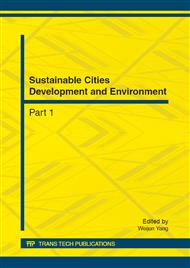p.1345
p.1350
p.1355
p.1359
p.1363
p.1370
p.1376
p.1381
p.1385
Three-Dimensional Complex Construction Project Management Maturity Model: Case Study of 2010 Shanghai Expo
Abstract:
The increasing complexity of construction projects as a common trend has had a significant impact on management maturity assessment and improvement for the project participating units, especially for the owners’ Project Management Office (PMO). While most maturity models are rationalistic, this paper presents a practical complex construction project management maturity model based on project management three-dimensional perspective. Integrating Organizational Project Management Maturity Model (OPM3) and Best Practices (BPs) derived from 2010 Shanghai Expo practice, this case-based maturity model is constituted by three sub-models: PBS Maturity, Process Maturity and Organization System Maturity. The model uses structured questionnaire consisting of BPs to implement assessment. The proportion of BPs achieved is considered as the maturity level of assessment objectives. Shanghai Expo AB Area is used to test the validity of the model. The result shows that owners’ PMO can assess and improve their project management maturity with the model effectively.
Info:
Periodical:
Pages:
1363-1369
Citation:
Online since:
October 2012
Price:
Сopyright:
© 2012 Trans Tech Publications Ltd. All Rights Reserved
Share:
Citation:


